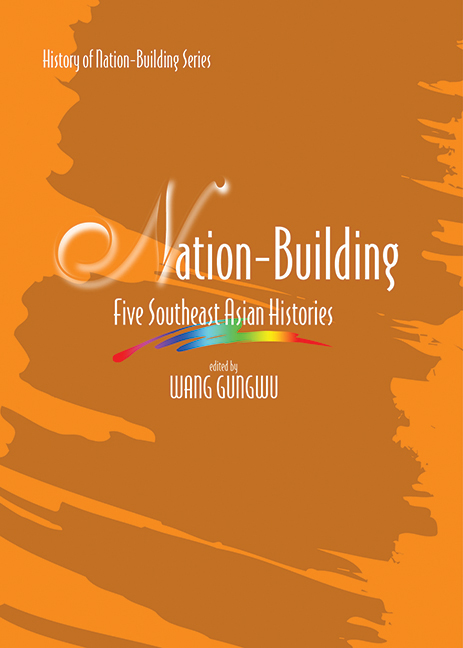Book contents
- Frontmatter
- Contents
- Preface
- The Contributors
- Chapter One Contemporary and National History: A Double Challenge
- Chapter Two Nation and State in Histories of Nation-Building, with Special Reference to Thailand
- Chapter Three Rethinking History and “Nation-Building” in the Philippines
- Chapter Four Writing the History of Independent Indonesia
- Chapter Five Ethnicity in the Making of Malaysia
- Chapter Six Historians Writing Nations: Malaysian Contests
- Chapter Seven Writing Malaysia's Contemporary History
- Chapter Eight Forging Malaysia and Singapore: Colonialism, Decolonization and Nation-Building
- Chapter Nine Nation-Building and the Singapore Story: Some Issues in the Study of Contemporary
- Chapter Ten Nation and Heritage
- Index
Chapter Two - Nation and State in Histories of Nation-Building, with Special Reference to Thailand
Published online by Cambridge University Press: 21 October 2015
- Frontmatter
- Contents
- Preface
- The Contributors
- Chapter One Contemporary and National History: A Double Challenge
- Chapter Two Nation and State in Histories of Nation-Building, with Special Reference to Thailand
- Chapter Three Rethinking History and “Nation-Building” in the Philippines
- Chapter Four Writing the History of Independent Indonesia
- Chapter Five Ethnicity in the Making of Malaysia
- Chapter Six Historians Writing Nations: Malaysian Contests
- Chapter Seven Writing Malaysia's Contemporary History
- Chapter Eight Forging Malaysia and Singapore: Colonialism, Decolonization and Nation-Building
- Chapter Nine Nation-Building and the Singapore Story: Some Issues in the Study of Contemporary
- Chapter Ten Nation and Heritage
- Index
Summary
When five Southeast Asian historians took up the challenge to write five nation-building histories, they embarked on a project that took as its main point of reference the nation-state. While the five histories in their final form will be very different in how they approach their respective countries, each historian accepted the nation-state as worthy of serious attention. It was not an abstraction; it was not an illusion. It was not an unwelcome European by-product of the colonial period but a real and meaningful entity that shaped the post-independence history of each country. These historians are not besotted with the nation-state, nor are they uncritical of its mortal rulers. Rather, they are not, or at least not yet, willing to discard the nation-state as the political entity whose unity, multi-cultural membership, and territorial integrity are best able to give expression to aspirations for political participation, social justice, and economic security. Not one of these historians has given up on the nation-state. They have also not given up on the nation.
This willingness to take the nation as a given and something worth fighting for and writing about is not universal in post-colonial societies around the world. A case in point is South Asia, particularly in the writing of India's history. Generalizations are always a little risky, but I would venture to say that a conversation in India today about the nation would move quickly to a discussion about ethnicity, religion, communalism, or caste. Not much hope is invested in the nation, and nationalism is seen as a derivative discourse, an unwelcome legacy of colonialism. The Subaltern Studies group contributed greatly to this shift, and the words of Partha Chatterjee in The Nation and Its Fragments, published about a decade ago, are still worth recalling:
The continuance of a distinct cultural “problem” of the minorities is an index of the failure of the Indian nation to effectively include within its body the whole of the demographic mass that it claims to represent. The failure becomes evident when we note that the formation of a hegemonic “national culture” was necessarily built upon the privileging of an “essential tradition,” which in turn was defined by a system of exclusions.
(Chatterjee 1993, p. 134)- Type
- Chapter
- Information
- Nation BuildingFive Southeast Asian Histories, pp. 21 - 38Publisher: ISEAS–Yusof Ishak InstitutePrint publication year: 2005

